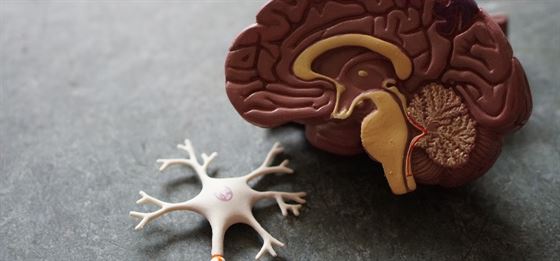
Understanding Your Teen

The teenage years are a time of significant change, both physically and emotionally. It's no wonder teenagers can be moody, impulsive and even reckless at times. But what's going on inside their brains that makes them act this way? Recent advances in neuroscience have allowed researchers to take a closer look at the teenage brain. According to studies the prefrontal cortex, the part of the brain responsible for planning and decision-making, is not fully developed until a person is in their early 20s. During this time, the teenage brain is undergoing massive changes, both in terms of its physical structure and how it functions. This can lead to some interesting and, at times, frustrating behaviours. Let's take a closer look at some things neuroscience can tell us about the teenage brain.
The Teenage Brain Is Sensitive to Rewards
One of the things which make teenagers so impulsive is their brains are more sensitive to rewards than those of adults according to a study. This means they are more likely to take risks, even if those risks are dangerous. So, a teenage brain might only see the potential rewards of a situation without considering the risks , such as when choosing to cheat for a test instead of making an effort to study.
The Teenage Brain Is Prone to Risk-Taking
A study shows the teenage brain is also less likely to consider potential risks before taking action. So, a teenager might do something without thinking about the potential consequences. This may cause them to take unnecessary risks, such as driving too fast for 'thrills' or being influenced by peers to try drugs or alcohol. The teenage brain is hardwired to seek out new experiences. And, unfortunately, some of those experiences can be harmful.
The Teenage Brain Is More Emotional Than the Adult Brain
Teenagers tend to be moody as their brains are more emotionally reactive than the adult brain. This means they feel emotions more intensely than adults do. For example, a teenager might get upset over something which seems minor to an adult. Or, they might feel elated after a small success. This emotional intensity can lead to some impulsive behaviors, such as lashing out in anger or making rash decisions. Mental health disorders, such as depression and anxiety, are also more common in teenagers than adults and typically start appearing during adolescence according to research. Teen years are a moment of physical development, and this has a significant impact on their emotions and thoughts, as hormones and chemicals are regularizing. Some of the behaviors that are common amongst teenagers during this period are:
- Sudden outbursts - crying or anger
- A preference to be left alone
- Lack of communicating
- Change in diet, sleep and eating patterns
- Preference of peers' company to family
- Anxiety related behaviors
- Overly concerned about “what others think of them”
How Can You Help Teenagers?
So, what can you do to help teenagers navigate these years of change? It's important to remember the teenage brain is still developing. So, teenagers need your support and understanding as they learn to cope with their changing bodies and brains. Teenagers are just learning how to self-regulate. It's at this stage of development that self-regulation and self discipline are put into practice. This means although teens can be prone to immediate gratification, and impatience when it comes to having their needs met, they also start to understand what it means to consider what their actions mean. And how to make healthy choices. You can help them by remaining patient, flexible and providing guidance and structure. Here are five things you can do to support the teenagers in your life:
1. Encourage Them to Get Enough Sleep
Sleep is vital for brain development and teens need around eight hours of sleep each night. Research has proven teenagers need more sleep than adults and children. But many teenagers don't get enough sleep because of late-night homework, early school start times and social media use. Encourage your teenager to establish a healthy sleep schedule by setting bedtime and wake-up times and limiting screen time before bed.
2. Prioritize Mental Health
Help your teenager find healthy ways to cope with stress and anxiety. This might include exercise, journaling or talking to a therapist. Finding outlets for their emotions and healthy ways to express their feelings is important.
3. Make Time for Physical Activity
Exercise is good for the body and the mind. It can help improve mood, memory and focus. Encourage your teenager to get at least 60 minutes of physical activity each day. This can be anything from playing sports to going for a walk. A healthy diet is also important for brain development and mental health. It can also help improve mood and energy levels.
4. Socializing
Interacting with others is crucial for teenage brain development. It helps teenagers learn how to communicate and solve problems. Encourage them to participate in extracurricular activities or volunteer work to help them socialize and learn new skills.
5. Limit Screen Time
Too much screen time can have negative effects on the teenage brain. It can lead to sleep problems, anxiety and depression. It can also interfere with social interaction and physical activity. Help your teenager establish healthy screen-time limits by setting rules for device use.
The teenage years can be a challenging time for both teenagers and their parents. But by understanding how the teenage brain works, you can provide support and guidance. This will help your teenager navigate these years of change as they develop into a happy and healthy adult.
Articles
Build your awareness and get inspired with our researched articles on how you can strengthen your well-being
Popular Topics
An OTP has been sent to the email address
provided.
Please check your Inbox and Spam folders.

What Would You Like to Speak with a Specialist About?
Mental Fitness Journey starts Now!
Chearful Connects you with Top-tier Qualified Wellness specialists for the Price of a cup of Coffee!

Next Steps
- A Client Team member will reach out to you to schedule a session with the most suitable specialist.
- You will receive an email with a 10% Discount Code* for your 1st session.
- We invite you to Explore the Platform & Sign Up today! *Upto a maximum of $10 discount on a session purchased




 1043 Read
1043 Read




.jpg)










.png)
.png)
.jpg)

.jpg)

.jpg)




.jpg)



































.jpg)

.jpg)
.jpg)

















































